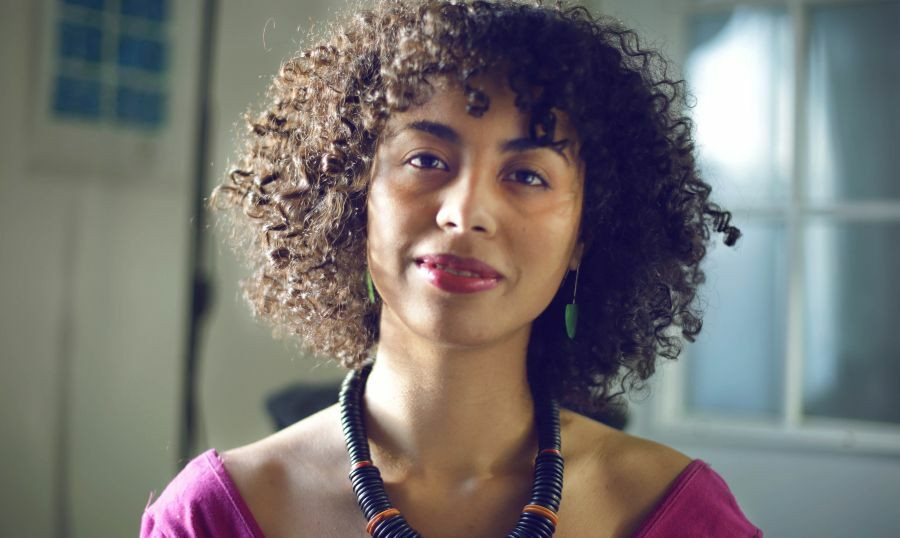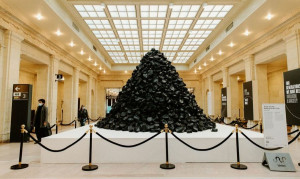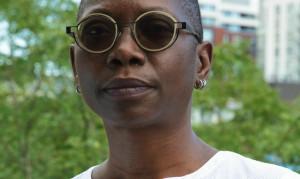As a result, she spent most of her time watching films, which became her gateway to storytelling and learning how other people live. Over the years, her childhood escape became a career passion – filmmaking. Now, Bedward is a Toronto-based filmmaker, director, and producer focusing on stories that resonate with her as a person of colour who, to some extent, still feels like an outsider. Through her films, Bedward hopes to create more positive relationships and experiences for society as a whole.
Journey into Filmmaking
Bedward was born in Ottawa to a Jamaican father and a French-Canadian mother. After completing high school, Bedward studied filmmaking, her childhood dream. She didn’t see many women of Colour at film school, which she found intimidating enough to limit her study to the theoretical and historical aspects of filmmaking.
Even with a BA in Political Science & Cinema Studies and an MA in International Communications, Bedward found it difficult to find paid work in the film industry. Though involved in filmmaking, she needed other jobs to pay the bills which tends to be an unfortunate reality for most people in the industry. “A lot of Black filmmakers have to find a second job or a day job,” Bedward says. “But that’s changing now since there’s been a call to action to hire more Black people in the film industry.”
Bedward was always fascinated by the culture, music and language of Brazilians, including the history of Capoeira, an Afro-Brazilian martial art. “I moved to Brazil for a year and met many artists, including filmmakers there,” remarks Bedward. “That trip is what made me decide to go into the art of filmmaking.”
Bedward has been in the film industry for 10 years and runs a production company, Third Culture Media, with her production partner, Kate Fraser. Launched in 2015 with support from the Michaëlle Jean Foundation, Third Culture Media produces both narrative and documentary films. Fraser and Bedward work as a creative team on all of the film projects and try to tell stories that people aren’t familiar with and challenge the status quo. Bedward has produced three short documentaries, a short film (The Foreigner), and her first feature documentary (Black Zombie), a film based on Haitian folklore and a metaphor for slavery. Bedward also co-directed the documentary film A Hidden History: the Story of the New Orleans Tribune. “That is when I fell in love with documentary films,” Bedward says. “It’s much easier to get funding for documentary making and it costs a lot less than a narrative film.” Though she loves telling stories and creating relationships with her documentary subjects, Bedward still loves fictional narratives too. “There are stories I want to tell in fiction as well, so working in both would be great,” says Bedward.
Bedward considers filmmaker/producer Jennifer Holness, Chair of the Black Screen Office, a mentor. “She has incredible energy and I’m very appreciative of all the doors she’s opened for me,” lauds Bedward. “She lent her wisdom and experiences to us on our latest film, and her support has been invaluable to my team and me.”
Why We Fight
Bedward’s latest film project, Why We Fight, is a poignant story about a family raising a son with a rare genetic condition. They draw their strength from the ancestral traditions of capoeira, a metaphor for the fight to create a life for themselves and their son. “I think there's a lot of power in these types of stories, especially for Black people, because it's empowering for us,” Bedward offers. “We don't know our language and culture which is hidden in music and all these little things.” The project was fully commissioned by CBC and can be viewed on CBC GEM.
Important Attributes and Ethical Questions in Filmmaking
For Bedward, the most important quality of a filmmaker is persistence and being open to learning. Bedward prioritizes the ethics of filmmaking above everything else. She believes any given film has an impact on its subjects, the communities represented in it, as well as the audience. “When I make documentary films, I show my subjects the film and ask them for their opinion on it, and I also take advice from the community to gauge their perspective on the film,” explains Bedward, who also emphasizes the importance of test screening to see people’s reactions and to gauge if certain scenes need to be changed.
Bedward’s Philosophy on Documentary Filmmaking
Bedward points out the importance of first discussing your vision for the film, your intentions, and your long-term goals with the subjects of your film, to create an authentic experience for viewers. “Character is very important in documentaries because you have to build trust and understand that this film will impact your subject’s lives,” says Bedward. “As a director, that puts a lot of responsibility on you.”
Bedward wants to explore the stories of enslaved Africans and how they lived in the Americas throughout their ordeal. Bedward believes that the best way forward is through inclusion and creating a real sense of purpose. “For me, filmmaking should have a positive impact on society and to achieve that, you have to resonate with people and treat them with care,” remarks Bedward. “A big part of my philosophy is the idea of care for the subjects that are telling me their stories, and also honesty, truthfulness and respectfulness.”
She also stresses the importance of an advisory board to tell the stories of people from outside your lived experience. “If you don’t have a shared life experience, or if you are not from that community, you might not be able to make the film at the desired standard,” Bedward advises.
The Most Challenging Aspects of Filmmaking
“In general, filmmaking is an incredibly expensive art form,” Bedward says. “It requires a lot of investment and input from talented people to make the content worth watching, so our biggest challenge is to raise money, which isn’t easy when you’re a Black woman in an industry dominated by white males.” This leads to the other big challenge. Ensuring sure you have the time to create something that resonates with people and hone in on your vision. “This is hard to do when you’re spending most of your time raising money,” Bedward laments.
According to Bedward, most broadcasters are skeptical about Black people’s stories and worry they won’t find an audience. “But this isn’t true,” explains Bedward, “many people are hungry for this sort of content.” She believes this trend is slowly changing as Black filmmakers are allowed more opportunities, representation, and control over the type of content they create in the film industry.
In terms of advice for aspiring filmmakers, Beward offers this. “If the project really means something to you, stick to your guns, keep pitching, keep learning about the different places you can go, and keep applying even if you get rejected.”
Distribution in the Canadian film industry is another struggle. “Distribution is always tough,” Bedward says. “With online streaming, Canadian content will be more accessible to Canadians, but how do Canadians learn about your film and how does your content pop when you don't have millions of dollars in marketing like American films do?”
Plans for the Future
Once things return to normal, Bedward plans to continue working on Black Zombie and to complete work on that film. She also hopes to concentrate on filmmaking full-time. Through Third Culture Media, Bedward wants to provide mentorship to aspiring filmmakers and create paid opportunities for underrepresented filmmakers, thereby changing the oppressive system that fosters racism. “That's my motivation in life,” says Bedward. “I believe humanity can do it.”
The murder of George Floyd provided a huge wake-up call and an impetus for the film industry to address anti-Black racism. “There is a huge momentum behind us, and more senior producers are throwing their weight behind our projects to laud for change,” remarks Bedward. “Hopefully things will change, but it’s going to be a long process, and it’s not going to be easy,” says Bedward.
Finally, Bedward adds her hopes for the future.
“It’s been a hard year for us due to COVID-19 and the rise in violence towards minorities, especially Black people. The isolation has just compounded the hate – but also the love. I’m excited for the future and the creations in the film industry. I think the industry is going to be stronger after this. Canada is undergoing a lot of changes and will provide us with more opportunities to make films.”

 By
By 





